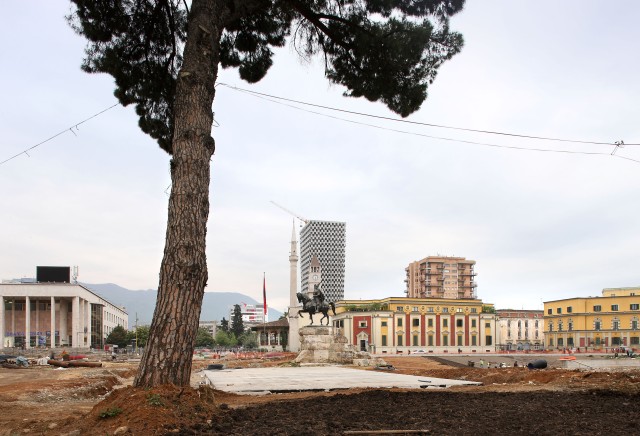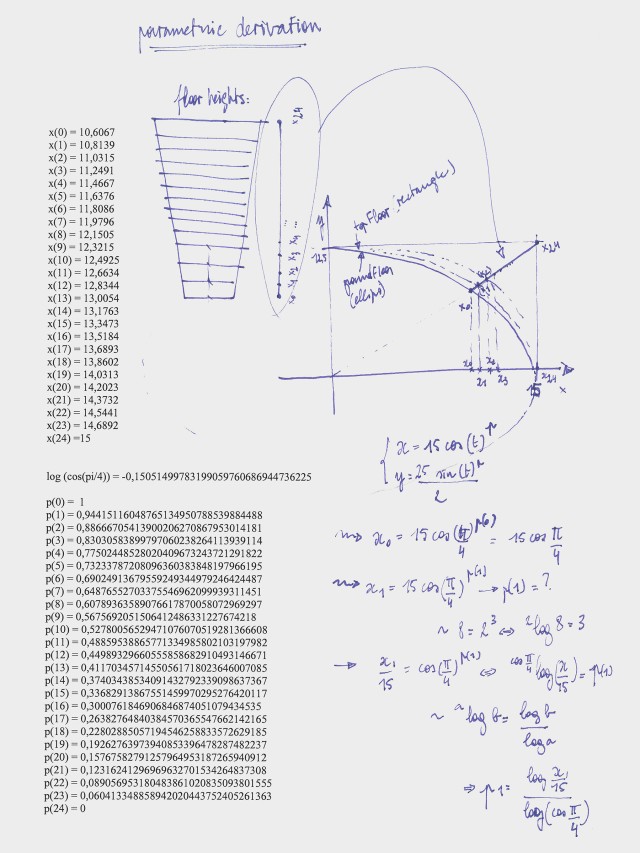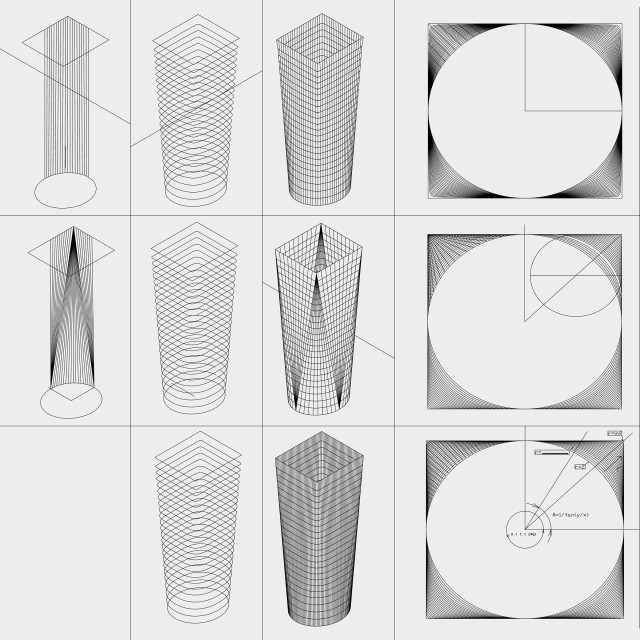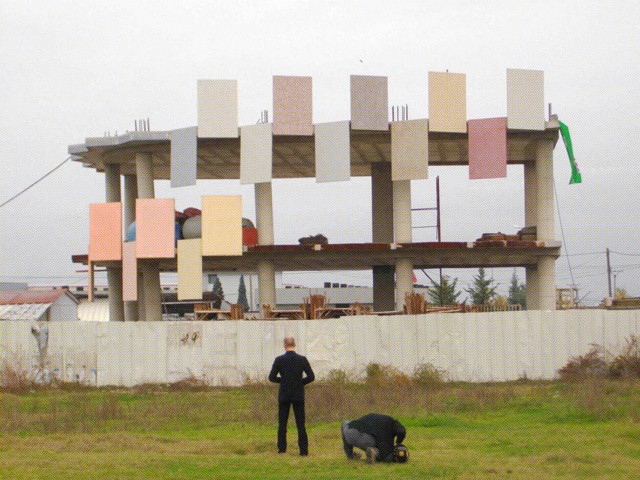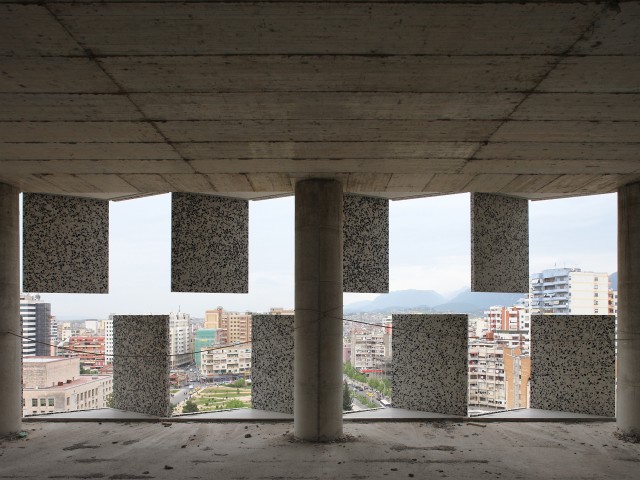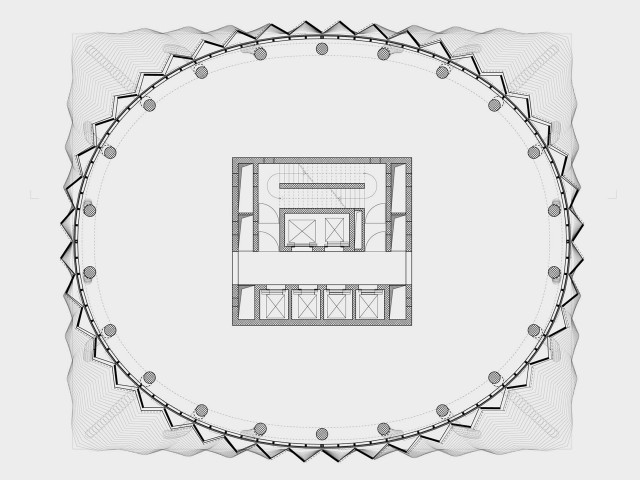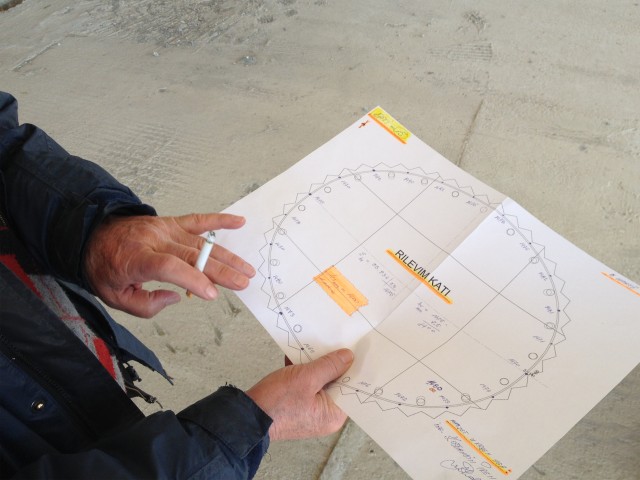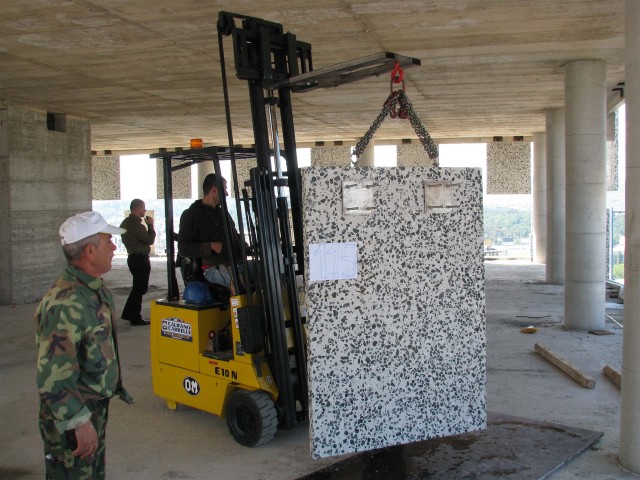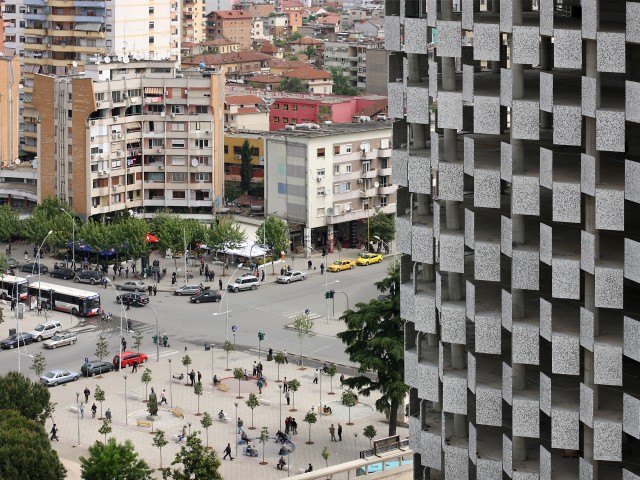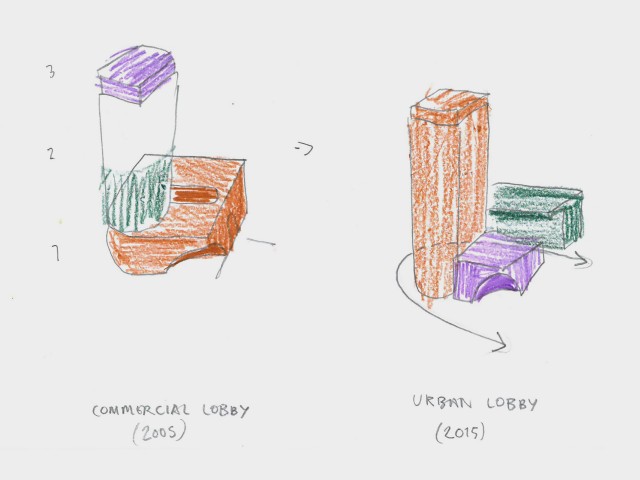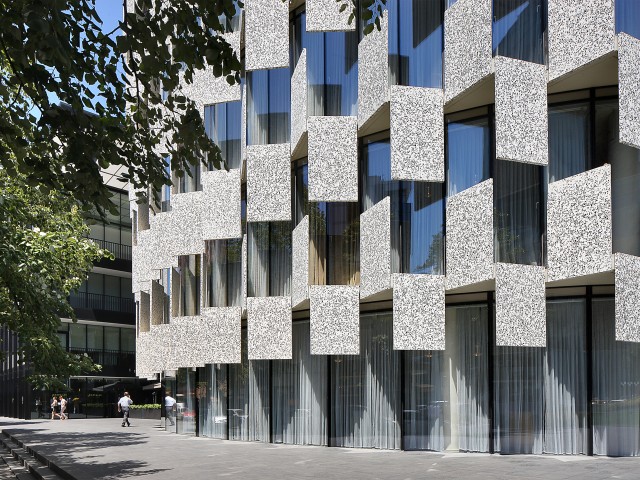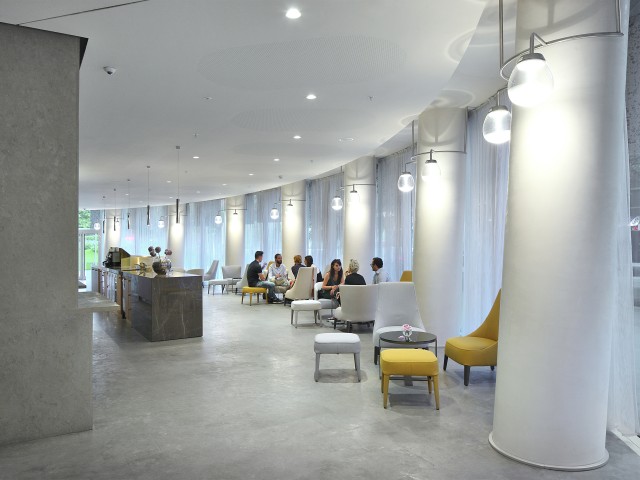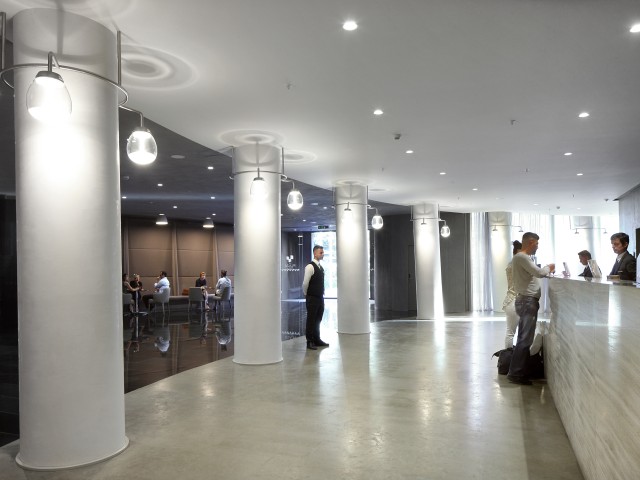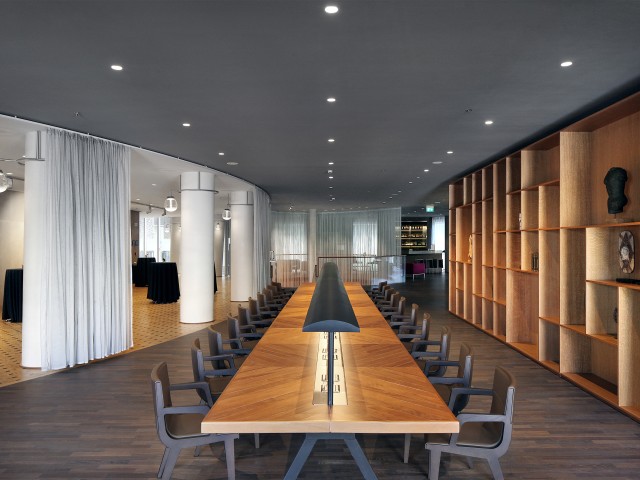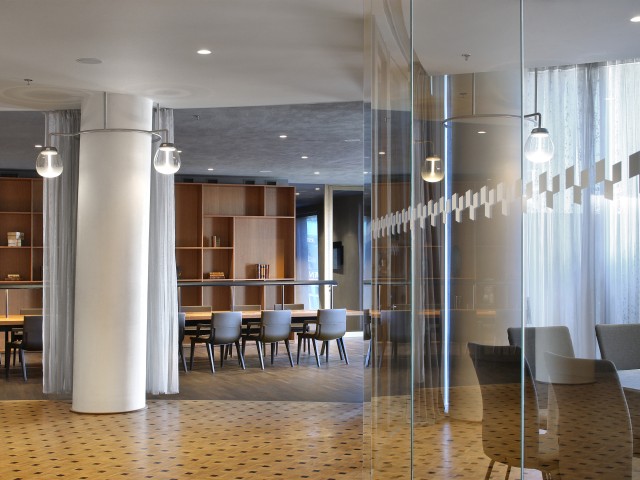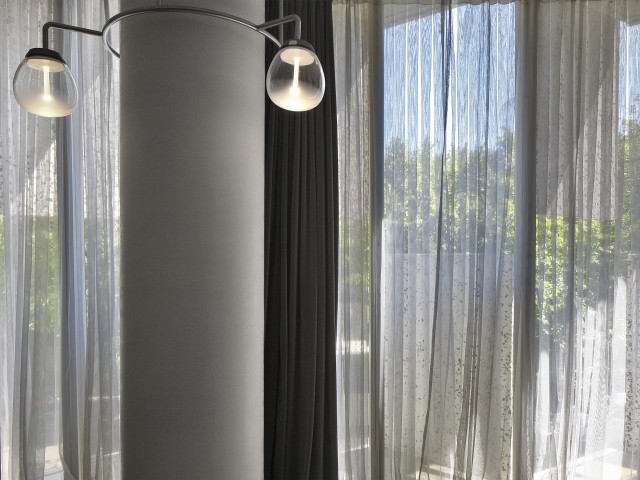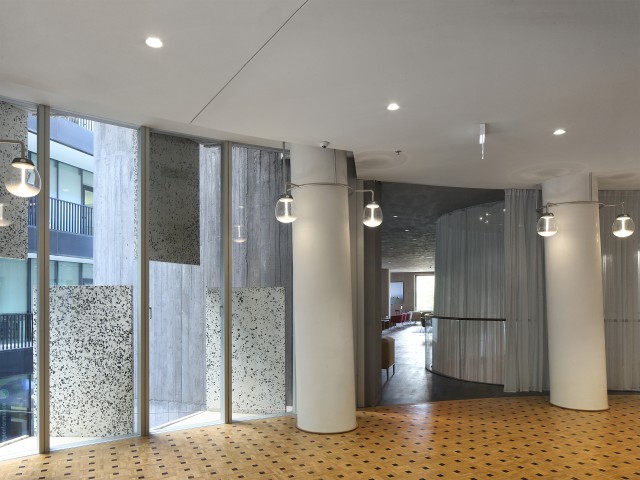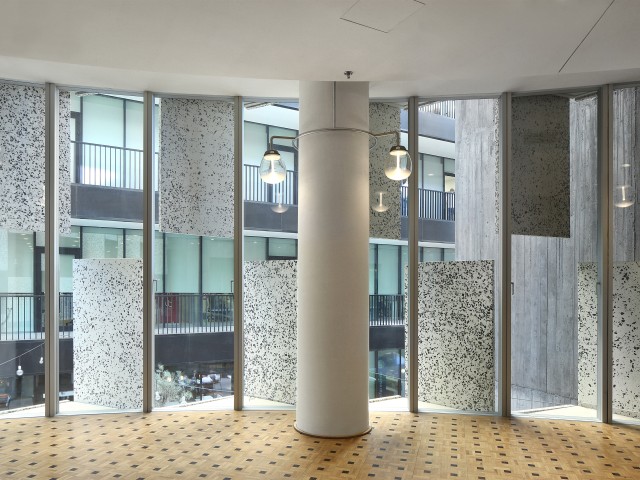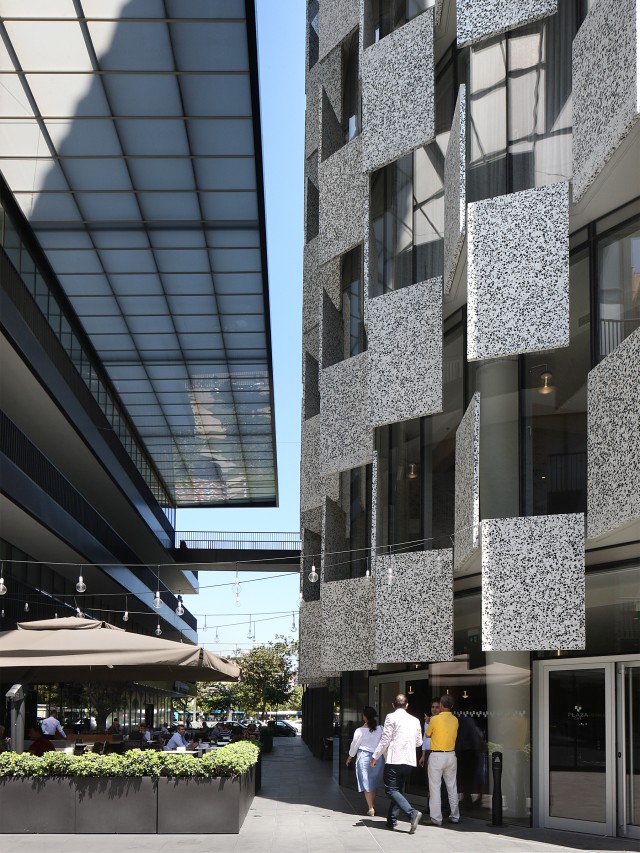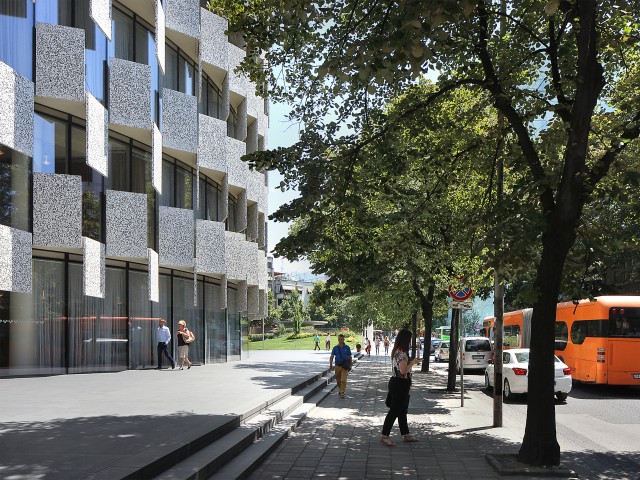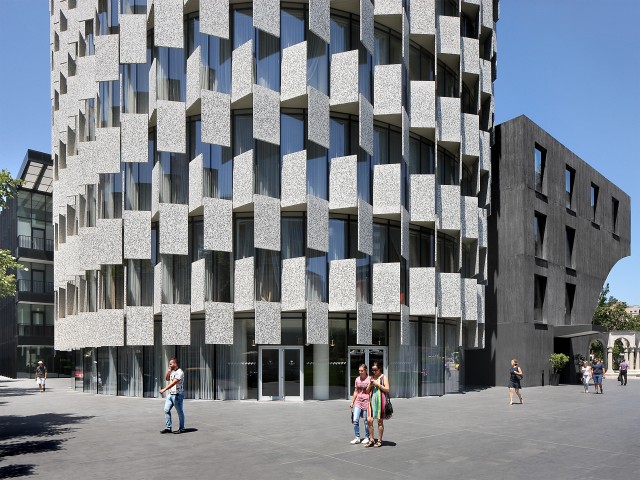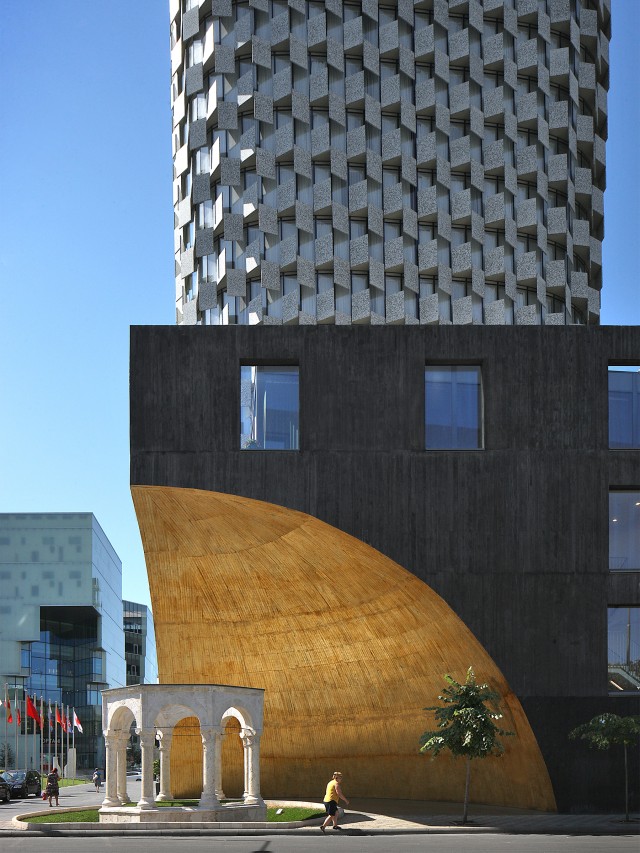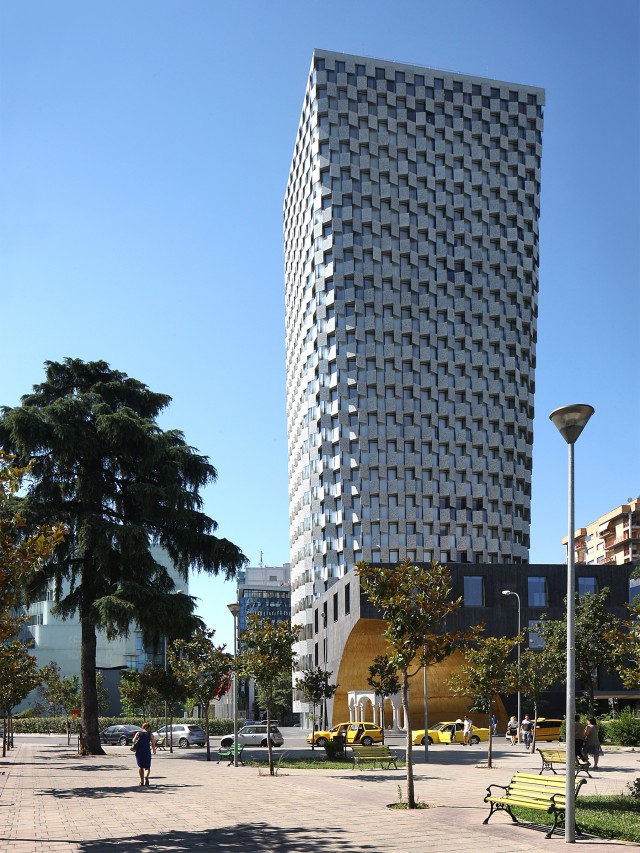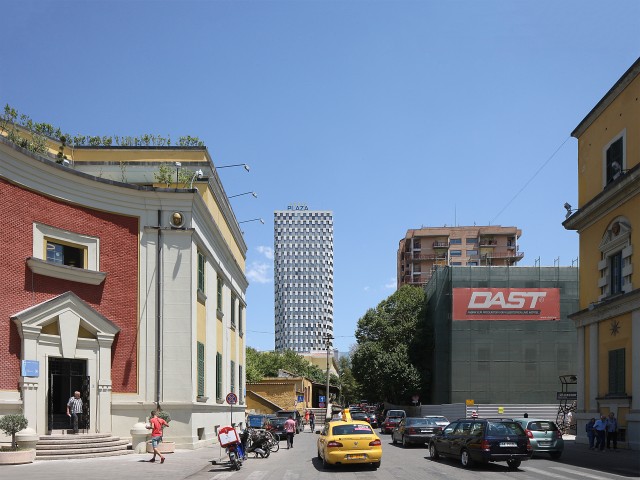TID Tower
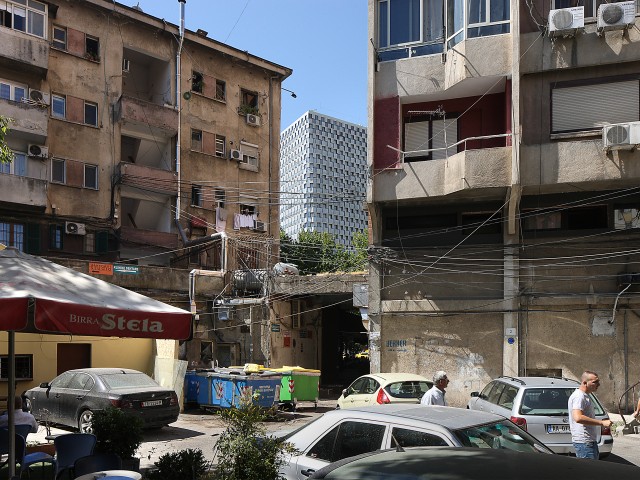
Communism collapsed in Albania around 1991. Before then, the country lived in severe isolation even from other socialist countries, a situation comparable to the disconnection of North Korea today. The violence during the regime found an equally violent counterpart in the way the country opened up to a so-called ‘free market regime’, which was in reality a destructive mix of pyramid schemes, widespread corruption and anarchy. Also, the urban environment suffered as a result, falling victim to cancerous illegal settlements. People were building everywhere: on rooftops, in courtyards, parks and riverbeds.
The TID tower is part of a series of operations to bring the idea of the city as a collective space back into the hearts and minds of the people. The first wave was an emergency operation: in the year 2000 an ‘urban guerrilla’ started, combining the destruction of buildings with the painting of façades in strong, larger-than-life colours. The second wave in 2003 was more organized and planning-oriented: it crystallized in a master plan for a pedestrianized centre, marked at the edges with two parallel (and monumental) rows of towers. The TID tower is one of them, and until today the only one to have been built.
The site for the tower qualifies as a prime location: it can be seen from the main boulevard entering the city. In consequence, the tower complements Tirana’s most important monuments: the Skanderbeg statue, the oldest mosque, the clock tower and, at the foot of the tower, a memorial tomb for the city’s founder, Suleiman Pasha. Being aware of this precarious historical line-up, the tower is designed as a monolith, avoiding the image of the modern glass tower. Starting from an ellipse and ending as a rectangle, the building has a simple shape which fully captures the Mediterranean light of Tirana and generates a wide range of unexpected shadows. It does not symbolize anything, but simply highlights an environmental and, as such, cultural condition.
The building and base are designed to be programme-neutral: the generic layout of the floors and the rough skin of the tower (50 per cent open, 50 per cent closed) make it possible to accommodate any programme. The whole structure is straightforward and well-made: the Sisyphean construction process consisted in getting rid of badly copied international building solutions and replacing them with new solutions with the proper amount of precision. It meant that, together with the client, we had to find and create local capabilities, resulting in an unexpected range of high-quality but low-tech solutions. During this process, the tower became increasingly basic, leaving diversity and a hint of luxury for the ground floor. Here, the building is designed as a constellation of three singular buildings: the 85 m tower coming straight down to the ground, a five-storey glass building with a cantilevering roof that creates an open air galleria, and finally a small concrete building with a hollowed-out quarter dome, embracing the tomb of Suleiman Pasha. Together these buildings generate a multiple and diverse environment, enhancing the most durable quality of any Mediterranean city: its public space.
-
Location
Tirana, Albania
-
Client
Tirana International Development (TID)
-
Completion
2016
-
51N4E project team
Johan Anrys, Freek Persyn, Peter Swinnen, Ulrike Franzel, Bob De Wispelaere, Jeroen Beerten, Joost Körver, Aglaia De Mulder, Chris Blackbee, Astrit Vranovci, Joram Van Den Brande, Tom Baelus, Konstantinos Pantazis, Aline Neirynck, Karol Wawrsyniak, Andreas Anton Amodio, Jan Das, Valbona Koçi, Marian Beschoner, Sotiria Kornaropoulou, Marta Petrov, Olivier Cavens, Galaad Van Daele, Guillaume Boulanger
-
51N4E involvement
Full Process
-
Consultants
Ney & Partners (structure), Cenergie (climate control)
-
Structural engineer
Helidon Kokona
-
Façade
Van Santen & associates
-
Construction
Tirana International Development
-
Construction costs (excl. VAT)
50.000.000 €
-
Programme
Offices, retail, restaurant, car park, hotel
-
Site surface
4.240 m²
-
Built surface
46.000 m²
-
Photography
Filip Dujardin / Stefano Graziani
